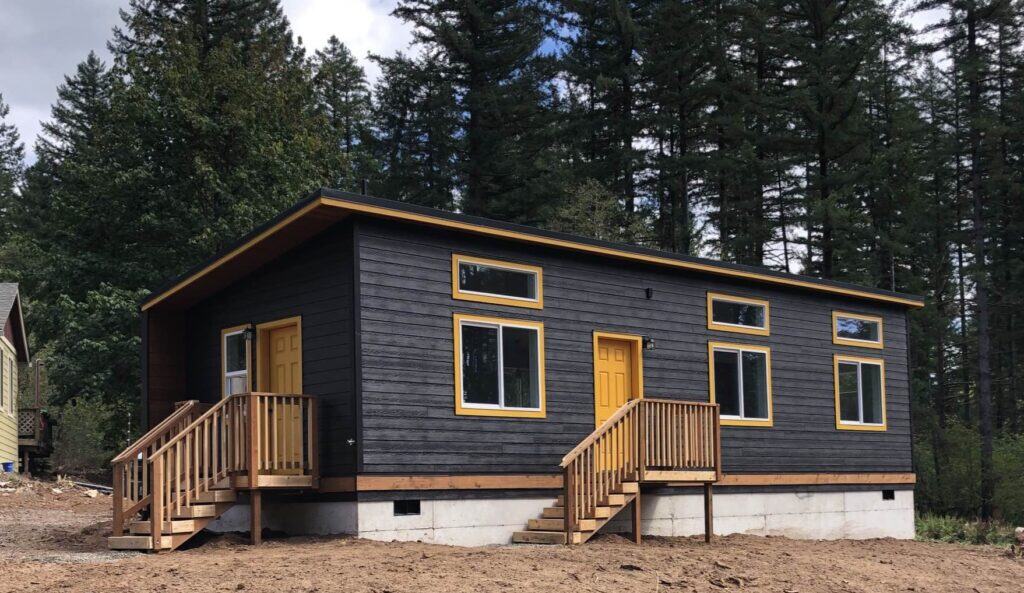Building an Accessory Dwelling Unit (ADU) in Clark County WA can feel overwhelming if you are navigating the rules on your own. Lot size limits, owner occupancy, rural versus urban zoning, and design requirements all shape what you can build. The good news is that Clark County has steadily improved its ADU policies to support housing choices for families, property owners, and residents seeking more flexible living options.
If you have ever wondered how to create more space for family, generate rental income, or add affordable housing to your property, understanding Clark County’s ADU regulations is the first step. Wolf Industries has helped dozens of homeowners across Clark County do exactly that with our turn-key modular ADUs that align with County standards and streamline the entire process.
This guide walks you through every major rule you need to know.
What Is an ADU in Clark County WA
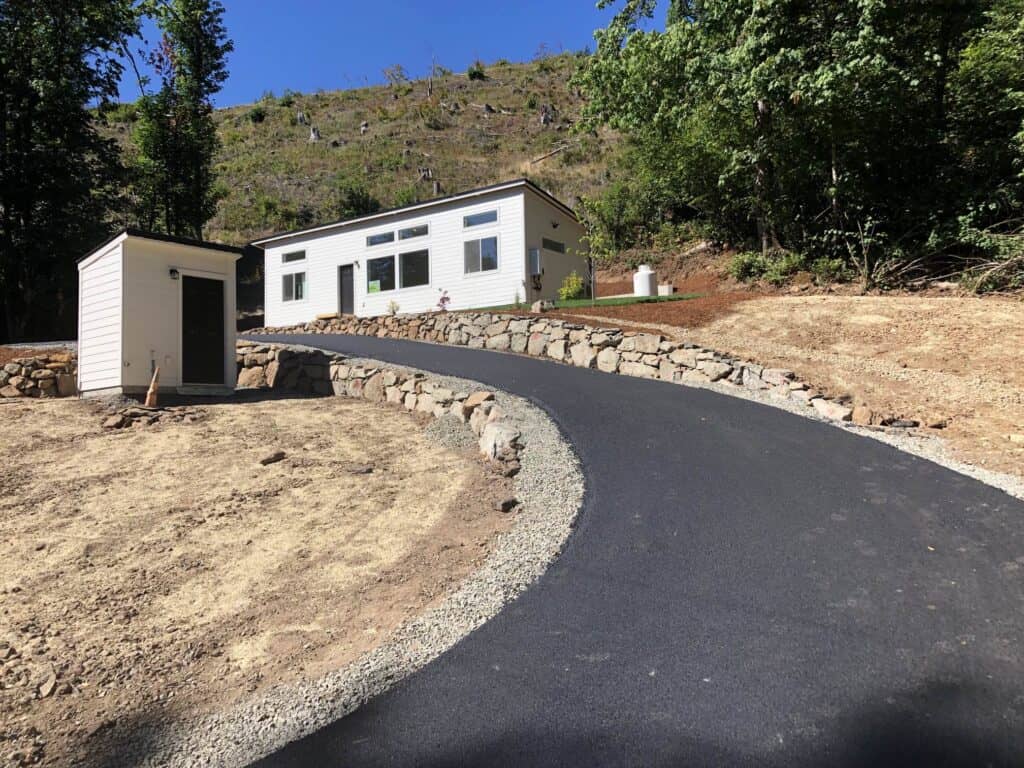
Clark County defines an Accessory Dwelling Unit (ADU) as a secondary housing unit located on the same lot as a primary residence. ADUs can be attached, detached, or built within the existing home. Their purpose is to provide flexible living space without changing the overall character of the neighborhood.
Clark County separates ADU rules into two main categories:
• Urban ADUs
• Rural ADUs
Each category carries different requirements for size, location, and zoning.
Where ADUs Are Allowed in Clark County
Urban ADUs
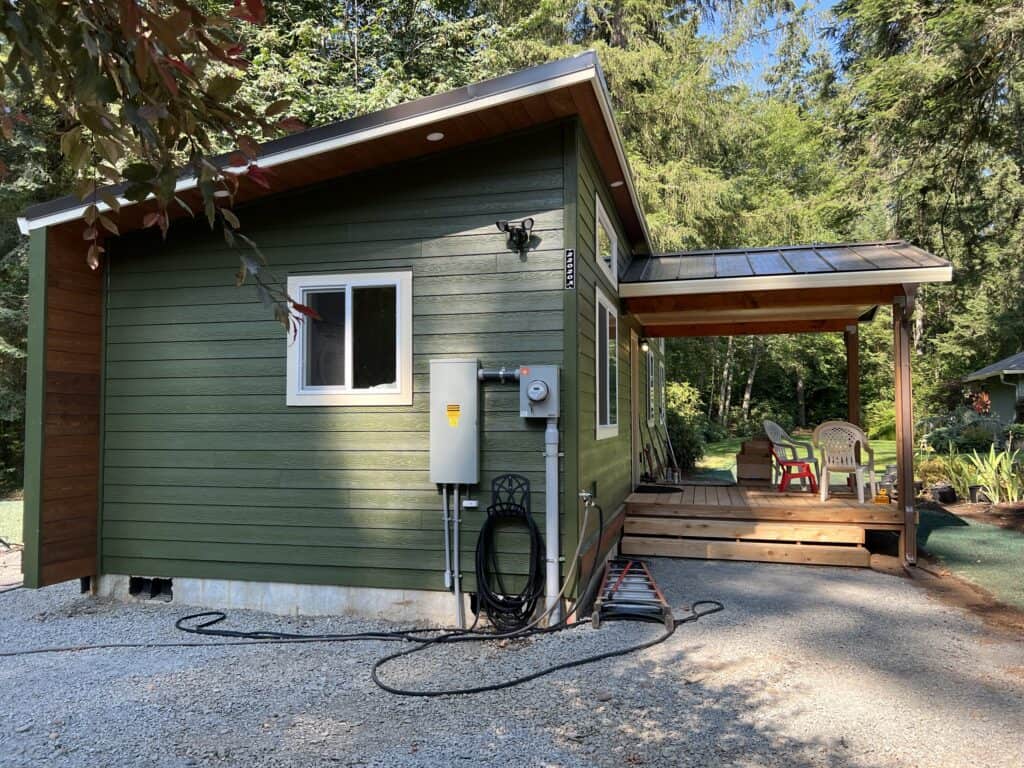
Based on the County’s Urban ADU guidelines, ADUs are allowed in most urban residential zones. These areas typically offer smaller lot sizes, access to utilities, and proximity to services. Residential zones covered under the urban rules generally allow detached, attached, and interior ADUs if size and design standards are met.
Rural ADUs
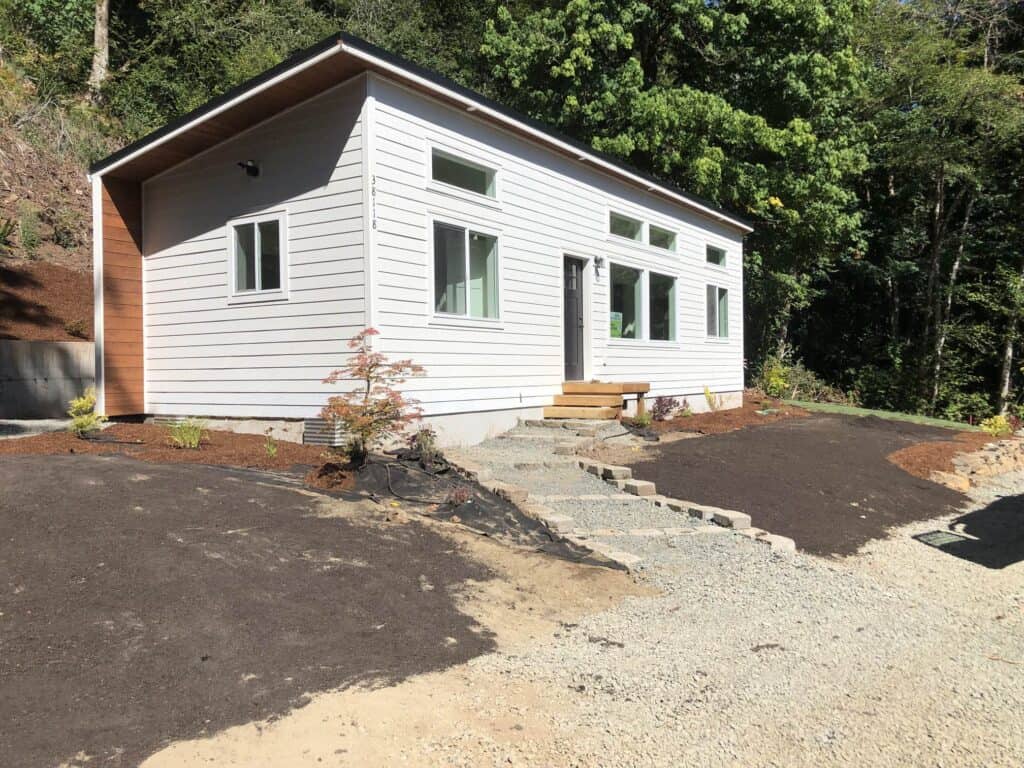
Rural ADUs follow a different rule set intended to preserve the character of rural and resource zones. These guidelines apply to larger lots, agricultural areas, and properties outside the County’s designated urban growth areas.
The key differences between urban and rural ADUs usually relate to lot size, maximum square footage, and placement on the property.
Size Limits for ADUs in Clark County
Clark County sets clear maximum sizes for ADUs to maintain neighborhood scale.
Urban ADU Size Requirements
Urban ADUs must meet the square footage limits described in the County’s urban guidelines. These include a maximum allowable size based on the zoning category and relationship to the primary dwelling. Urban ADUs have lower maximums than rural ADUs to reflect smaller lots and neighborhood density.
Rural ADU Size Requirements
Rural ADU size limits are larger. The rural ADU guidelines allow expanded square footage since lots in these zones are significantly larger and the County recognizes flexible housing needs for rural households.
Be sure to review the exact limits for your zoning district within the rural ADU handout to confirm whether your property qualifies.
Owner Occupancy Requirements
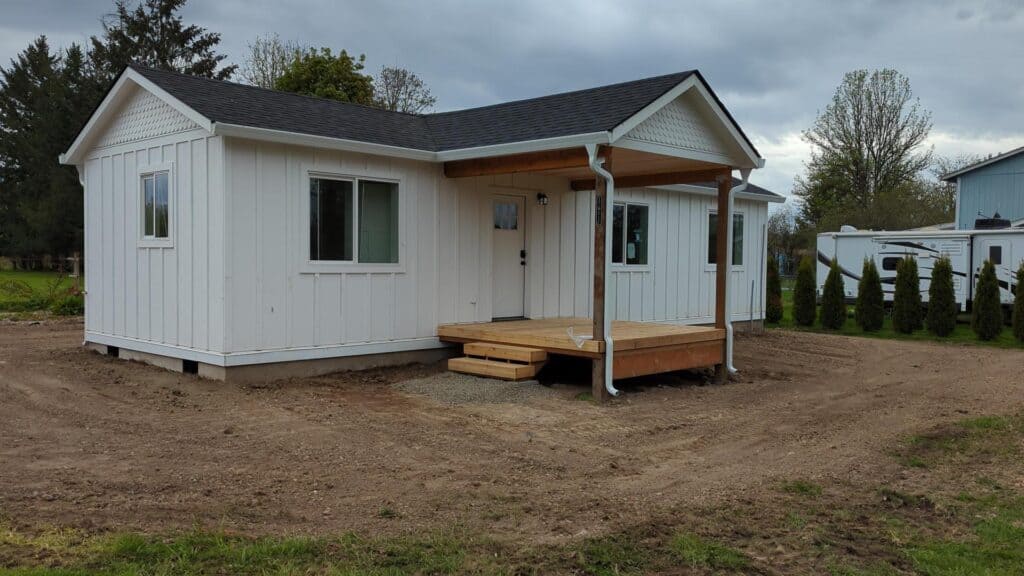
Clark County requires compliance with specific occupancy rules detailed in the County ordinance. These rules establish whether the property owner must live in either the primary residence or the ADU and under what circumstances occupancy must be verified.
Owner occupancy helps maintain neighborhood stability and ensures ADUs remain long term housing rather than short term rentals.
Parking Standards for ADUs
Parking requirements depend on whether the ADU is in the urban or rural area.
• Some urban zones reduce or eliminate parking requirements to encourage walkability and transit use.
• Other zones require one additional off street parking space for the ADU.
• Rural ADUs typically have more flexibility due to larger lot sizes and available space.
Parking rules are detailed clearly in both the urban and rural ADU handouts.
Design and Placement Requirements
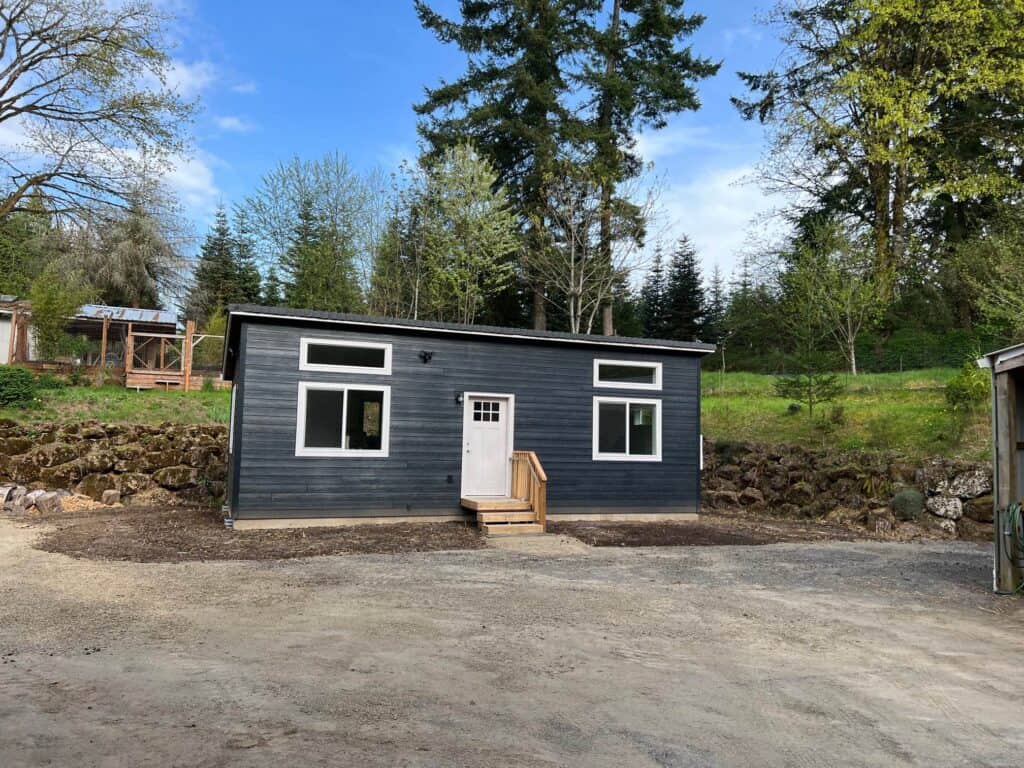
Clark County requires ADUs to meet specific design standards to match the character of the primary home and surrounding neighborhood.
These requirements include:
• Similar exterior appearance or architectural features
• Compliance with building setbacks
• Individual unit addressing
• Utility connection requirements
• Maximum height and footprint standards based on zoning
• Placement rules to ensure privacy and safety
Rural ADUs may also have agricultural or natural resource considerations that influence placement.
Permitting Requirements in Clark County WA
Every ADU requires permits before construction can begin. Clark County outlines a clear permitting process to ensure ADUs meet zoning and building standards.
Homeowners will need to prepare:
• A complete site plan
• Building drawings
• Information on utilities and infrastructure
• Documentation demonstrating zoning compliance
• Applications for building, mechanical, and possibly septic review for rural properties
Permit timelines vary but can extend several months depending on jurisdiction workload and the completeness of the application.
This is one of the top reasons homeowners choose Wolf Industries. Our in house permitting team has helped guide ADU regulations in Clark County, is deeply familiar with the local process, and handles the entire permit cycle for our customers.
Key Rules Introduced in Clark County Ordinance 2018 01 17
The County’s formal ordinance updated several important ADU regulations. These updates clarified requirements for:
• Maximum square footage
• Placement standards
• Owner occupancy
• Procedures for permit review and approval
These changes helped modernize ADU rules across the County. Wolf Industries worked closely with local jurisdictions during the evolution of these policies and continues to be involved in shaping ADU pathways that make housing more accessible.
Why Build an ADU in Clark County
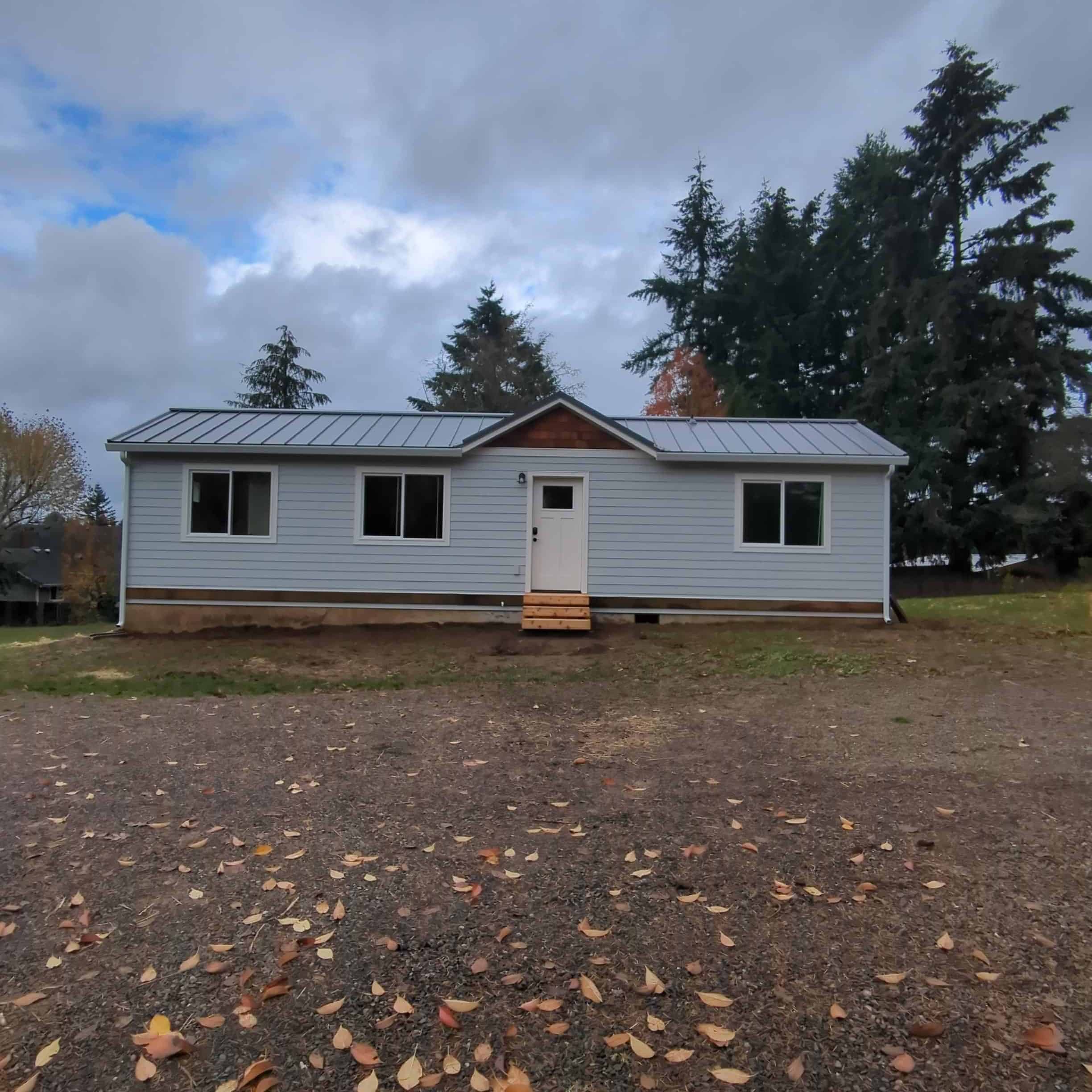
Homeowners choose ADUs in Clark County for many reasons:
• Creating housing for family members
• Providing aging in place solutions
• Generating long term rental income
• Increasing property value
• Reducing construction costs compared to traditional site built homes
• Adding flexible space without moving to a new property
Clark County’s improved ADU rules make it easier than ever to take advantage of these benefits.
Why Wolf Is the Premier ADU Builder in Clark County WA
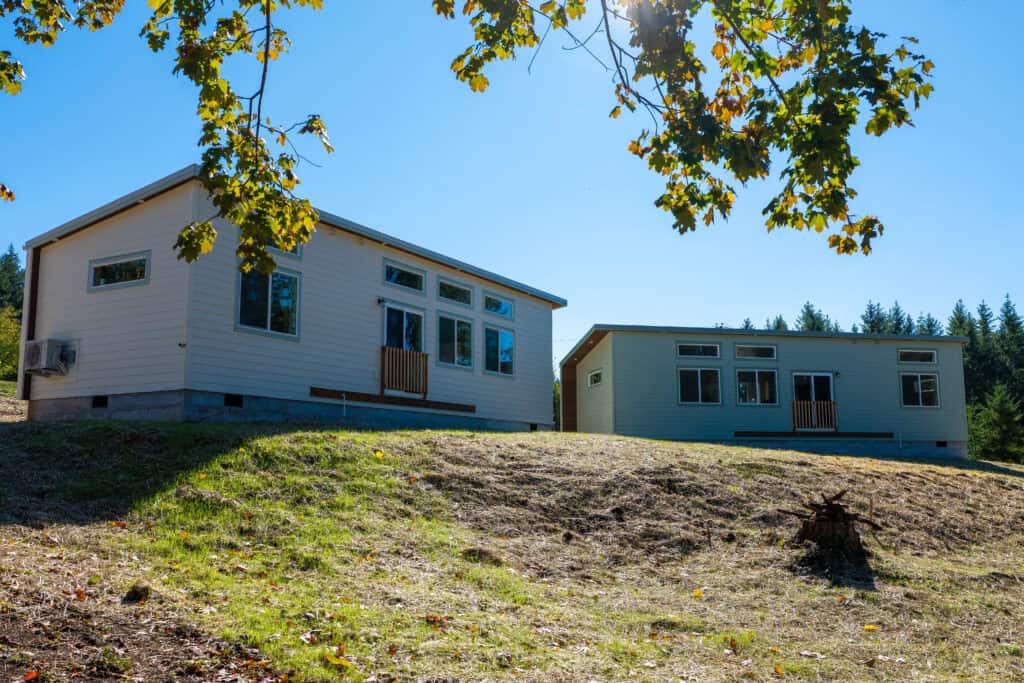
Wolf Industries has worked in Clark County for more than a decade and has built dozens of ADUs for homeowners throughout Vancouver, Battle Ground, Camas, La Center, Ridgefield, and rural areas across the County.
Homeowners choose Wolf because:
• We are a Clark County builder with established relationships at every jurisdiction
• Our permitting team has directly helped influence and shape County ADU policies
• Our turn-key process eliminates delays and reduces stress
• Our modular homes meet or exceed County building requirements
• Our controlled factory production delivers consistent quality and faster timelines
• We coordinate all steps from design to permits to installation
If you want a seamless ADU experience in Clark County, there is no one more experienced or more trusted than Wolf.
Get Started with a Free Property Evaluation
If you are thinking about building an ADU in Clark County WA, the smartest first step is to find out what is possible on your property. Wolf Industries offers a free property evaluation that confirms zoning, setbacks, buildability, and ADU feasibility.
Start your Clark County ADU project today by completing our free property evaluation form. Our team will review your property and guide you through the next steps with confidence.
Sources
Clark County Ordinance 2018 01 17
https://clark.wa.gov/sites/default/files/dept/files/community-planning/projects/Housing/ORD_%202018-01-17_Signed.pdf
Clark County Urban ADU Guidelines
https://clark.wa.gov/sites/default/files/media/document/2024-06/accessory-dwelling-unit-urban.pdf
Clark County Rural ADU Guidelines
https://clark.wa.gov/sites/default/files/media/document/2024-06/accessory-dwelling-unit-rural.pdf
